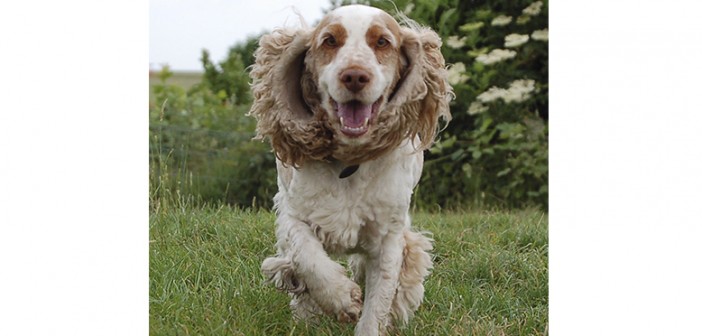The mishmash of storms and sunshine means spring has sprung in Central Oregon. Not only is the weather transitioning, so are we – as longer days and warmer temperatures mean more outdoor activities with our pets.
Injuries are the plague we try to avoid, as being sidelined from your favorite activities during this time of year can make even the most chipper of folks quite cranky. The same can go for your four-legged companion, where a torn ligament or sore back can keep them cooped up at home while you hike alone.
At Riverside Animal Hospital, the most common athletic injuries we see effecting dogs are soft tissue injuries to the knee, aggravation of chronic joint disease (like arthritis) and back pain. As the saying goes, an ounce of prevention is worth a pound of cure, so what are some things you can do to help keep your pet healthy and injury-free?
Physical conditioning is just as important for your dog as it is for you. Try your best to get them out daily for regular exercise. Hiking, jogging and swimming are excellent for their stamina and muscle strength, while being gentle on the joints. While fun, fetching balls and rough-housing are harder on the joints and ligaments with all the twisting and turning at a fast speed.
Maintaining a healthy weight is an important factor in avoiding injury. It is common for pets to gain a little weight during the winter months. Try to minimize this fluctuation by monitoring their weight and adjusting their food and treat intake accordingly. When the weather starts getting warmer, help them lose the weight with regular moderate activity. Turning fast and jumping with those extra pounds can have a big impact on their joints.
Talking about weight management leads us into a discussion on diet. There is no shortage of opinions and options when it comes to how to feed our pets, and there is also no one right answer. What works for one pet can be a total disaster for another.
There are a few simple rules of thumb you can follow to ensure your pet is getting the best nutrition you can provide. Feed the best quality of food you can afford. High protein diets tend to be the most expensive, but tend to be too rich for many dogs – so unless your dog has trouble keeping weight on, try to feed a more moderate protein diet.
If weight loss is necessary, prescription diets are significantly better than over-the-counter options. These prescription diets will not only help them lose fat while building muscle, they will have better energy and a healthier hair coat.
If you have questions about how to help your pet lose weight, talk with your veterinarian who can help you decide what to feed, how much and what a safe rate of weight loss would be.
Finally, joint supplements containing glucosamine are recommended to help support joint health. Omega 3 fatty acid supplements (fish oil) are good for skin and joints.
Developing and maintaining your pets fitness, monitoring their activity type, and diet are all important ways to help keep your best friend healthy and happy.
From all of us at Riverside Animal Hospital – we wish you a fun-filled summer!
Riverside Animal Hospital
Dr. Sarah Cummings
Dr. Cody Menasco
Dr. Deborah Putnam
25 NW Olney Ave
Bend, OR 97703
541-585-3739
www.riversidevetbend.com





